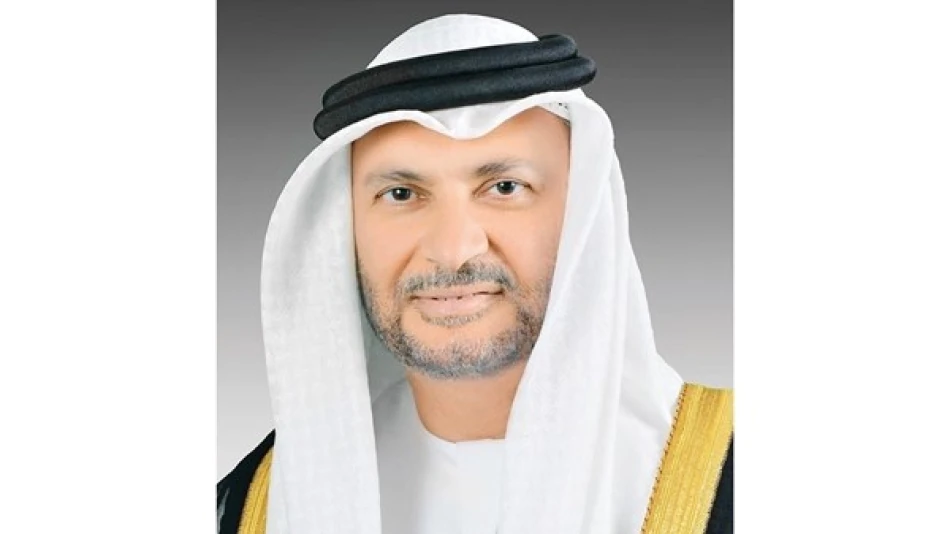
Anwar Gargash: UAE's Unwavering Commitment to the Palestinian People
UAE Carries 42% of International Gaza Aid Burden as UN Declares Famine Crisis
The United Arab Emirates has shouldered nearly half of all international humanitarian assistance to Gaza amid the UN's official declaration of famine in the territory, highlighting both the scale of the crisis and the uneven distribution of global relief efforts. As the international community faces what UN humanitarian officials call a "moment of collective shame," the UAE's outsized contribution raises questions about burden-sharing among wealthy nations and the sustainability of current aid mechanisms.
UAE's Dominant Role in Gaza Relief Efforts
Dr. Anwar Mohammed Gargash, Diplomatic Advisor to the UAE President, revealed that his country's aid contributions represent 42% of total international assistance to Gaza. This figure underscores the Emirates' disproportionate role in addressing what the UN has now formally recognized as a full-scale famine.
Speaking on social media platform X, Gargash emphasized that "history will record that my homeland, the UAE, stood tall with its humanity and generosity through serious commitment that formed 42% of total international aid to alleviate this tragedy."
Scale of Commitment
The UAE's contribution level suggests either a relatively small overall international response or an exceptionally large Emirati commitment—likely both. For context, during previous humanitarian crises, leading donors typically contribute 10-20% of total aid packages, making the UAE's 42% share remarkable by historical standards.
Regional Leadership Strategy
The UAE's humanitarian leadership in Gaza aligns with its broader regional strategy of positioning itself as a responsible stakeholder and mediator. Unlike Saudi Arabia's more cautious approach or Qatar's politically charged involvement, the Emirates has pursued what analysts call "humanitarian diplomacy"—using aid delivery to build international credibility while maintaining operational relationships across conflict lines.
Comparison with Regional Peers
This approach mirrors the UAE's response to other regional crises, from Yemen to Lebanon, where Emirati aid has often exceeded contributions from larger economies. The strategy serves multiple purposes: demonstrating Gulf leadership, building soft power, and creating diplomatic leverage for future negotiations.
International Community's Uneven Response
The UAE's outsized contribution highlights significant gaps in international burden-sharing. Traditional major donors—including the United States, European Union, and other wealthy nations—appear to be contributing far less than their typical shares in humanitarian crises.
This pattern reflects broader challenges in international aid coordination during politically sensitive conflicts, where donor countries may limit contributions due to domestic political considerations or diplomatic constraints.
Implications for Aid Architecture
The current distribution of aid responsibilities raises sustainability concerns. Relying heavily on a single donor, regardless of their capabilities, creates vulnerabilities in aid delivery and may limit the international community's ability to maintain long-term support.
Political and Humanitarian Balance
Gargash's statement carefully balanced humanitarian concerns with political positioning, reaffirming that UAE commitments to Palestinians "remain steadfast and rooted in our Arab identity and human conscience." This language suggests continued engagement regardless of changing political dynamics or normalization agreements with Israel.
The Emirates' approach demonstrates how Gulf states are navigating the complex intersection of humanitarian needs, regional relationships, and international diplomatic pressures. By leading on aid delivery while maintaining political commitments, the UAE positions itself as both a practical problem-solver and a principled regional actor.
Looking Forward
The UAE's dominant role in Gaza aid reflects both the country's growing international ambitions and the international community's limited response to the crisis. As famine conditions worsen, the sustainability of current aid levels—and the UAE's ability to maintain such a large share—will test both Emirati resources and international coordination mechanisms.
For other potential donors, the UAE's example creates both diplomatic pressure to increase contributions and a convenient excuse to maintain lower involvement levels, knowing that critical needs are being met elsewhere.
Most Viewed News

 Layla Al Mansoori
Layla Al Mansoori






